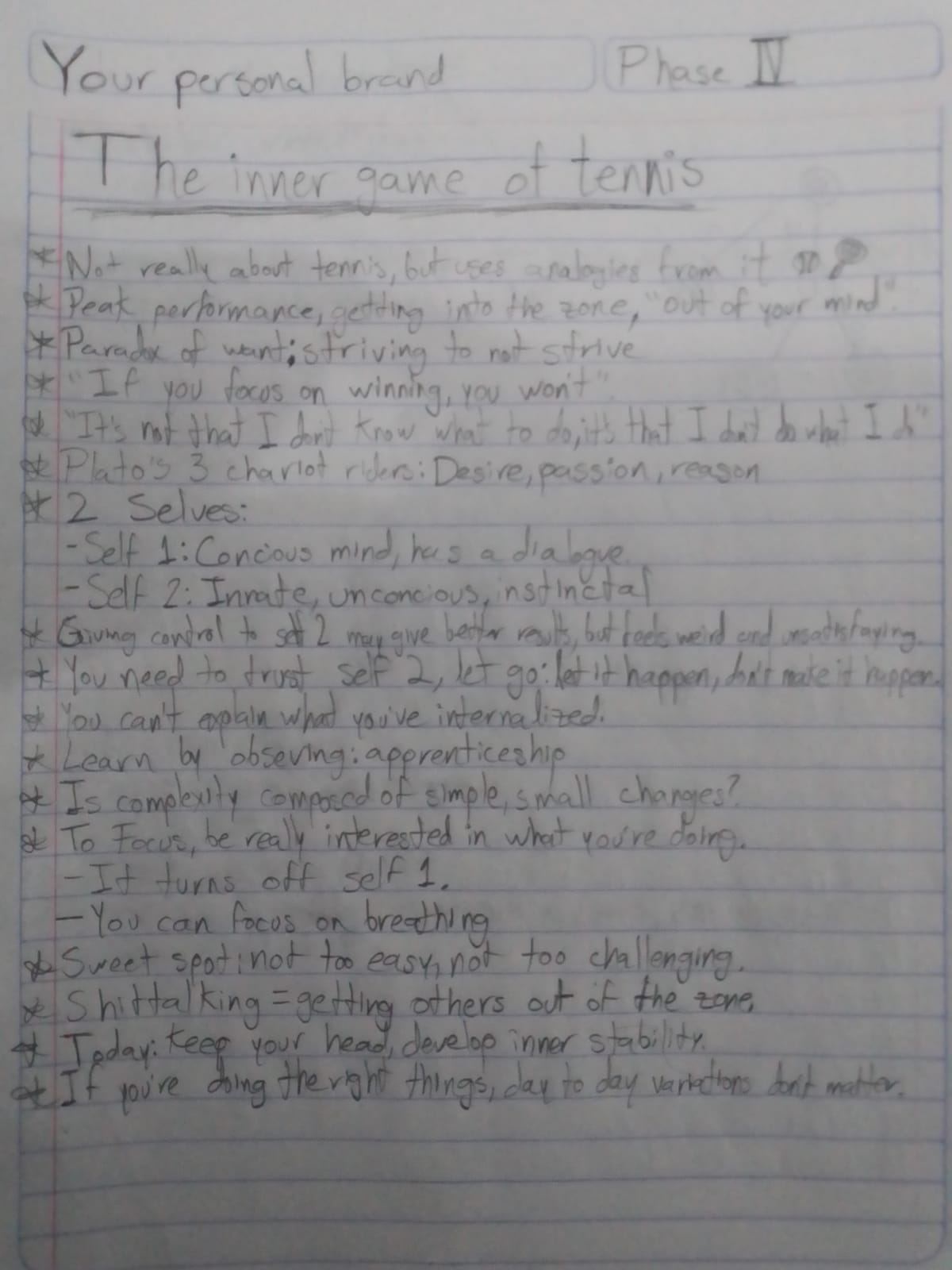Your Personal Brand, Week 18
As this phase comes to an end, I gather my thoughts and experiences once more. This phase was quite an interesting one, as the main purpose of it was getting hired and acing our interviews. The objective of this phase allowed me to reflect on these last couple of months, how much I’ve learned and the challenges we’ve been able to overcome. The last few weeks have been a great way of organizing all of that knowledge and practice into a coherent narrative, in such a way that each of us is able to highlight our best qualities, reflect on our errors, and in general, present ourselves in our best light as developers. In hindsight, I really appreciate the progress we’ve been able to make.
Into specifics, this week I had to prepare my grading rubric for the second round of Interviewmania in order to have said interview later on the week. Preparing this rubric was a bit harder than I thought, since I had never done something like this. Finding the right balance between being too lenient and being too harsh, as well as figuring out exactly what was important to grade and what wasn’t. In the end, I liked what I ended up grading upon, as well as the metrics I used to do so. This was an interesting exercise, as putting myself in the shoes of the interviewer allowed me to see this dynamic from a different perspective, making me realize a bit better how and what companies could evaluate me on.
But I am getting ahead of myself, before making such grading rubric, I had to have something to grade upon. Last week I mentioned I wasn’t sure what exactly my problem would involve, but that indecision had to be resolved quickly, as I needed to establish what exactly my interview would entail in order to create the rubric, test the problem and make some adjustments. In the end I decided to go for a hybrid of a React interview problem and an algorithm problem. The task consisted of the following steps:
- Create a simple React App: create a text box input and a button, each time you click the button a new list element must appear with the text displayed in the textbox.
- Perform some data validation:
- Don’t allow blank entries
- No repeated words
- Only allow letters.
- Highlight each entry which contains a palindrome.
- Consider you can rearrange letters any way you’d like, highlight any entry that can be rearranged into a palindrome.
Originally, the second task wasn’t there, but my mentors advised me to add some data verifications, as this is a common requirement in day to day applications. The fourth task was designed to be the most complicated, putting a roadblock in case my interviewee was acing each step. At the end I liked the balance In was able to achieve, though some improvements could surely be made with more experience from my part.
The interview itself was also quite the interesting experience, as I was able to see the picture from the other side of the table, understanding the dynamic, expectations and requirements that a recruiter might experience in a real life scenario. This not only allowed me to better sympathize with the person on the other side of the interview, but to manage my nerves, as well as being able to read your interviewee, making sure you aren’t stressing them more than the situation already is and making the right call to steer the candidate in the right direction in case they veer off.
Onto other news, during the week I had the chance to checkout and the podcast The inner game of tennis, as well as the talk Effortless Mastery: Liberating the musician within. While the titles might indicate no correlation whatsoever, in fact these two have a lot in common, as they touch on the same theme, this being the “zone”, “being in the zone”, “playing out of your mind”, or whatever name iteration of this thought you know of. These two lectures focus on the idea of the conscious vs the unconscious mind, the idea that we operate on two levels, and as long as we take heed of the conscious side without letting the unconscious side do its magic, our performance will suffer. The idea behind these is that we usually perform better when we don’t worry about our performance, and the more we worry the worst we perform, paradoxically. The essence of this conundrum is the idea that there are things that are simply ingrained deep within us, away from our control, something the inner game of tennis refers to as Self 2. The trick then to perform our best is to trust our skills, our capabilities, instead of trying to control something we really should and could not. A paradox indeed.
With that another week, as well as another phase comes to an end. Let’s see what awaits us on the next one.


.jpeg)